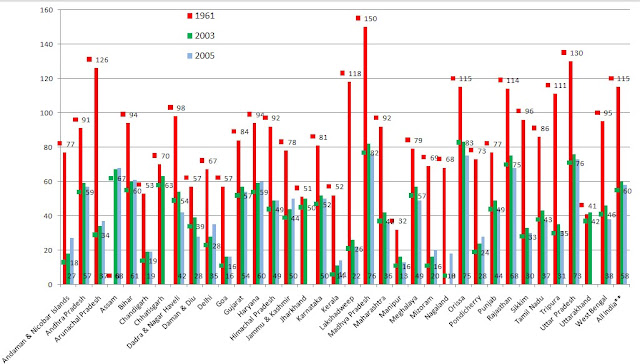There is always a first time for certain experience.
Some of us here in Kuwait experienced the worst power outage since 1995. (the year I landed here in Kuwait and for others they may remember the period during the invasion)
That is a long time to gain certain confidence in a country but now I fear the worst. I do remember the time a few years back when we lost power in our building due to a fire but the Ministry of Electricity and Water was quick to place a generator until the power was restored in the building. Yes.. This was the Kuwait that I knew. But this confidence is all shattered and in a few minutes some of us were rendered homeless and as helpless as refugees in a war torn country with the temperature soaring above 50 degrees.
Preposterous one may say.. yea..
You are exaggerating! Oh yea…
But is this not Kuwait?
Even a person with a rudimentary knowledge of Kuwait knows the basics. It is an oil rich country, ranked 10th in the world for the production of oil and the 3rd among the Middle Eastern countries. Maybe it is nowhere near KSA but Kuwait is much smaller when compared to KSA and I am sure if things are managed as it should be, there ought to be no issues.
It all started last Thursday afternoon while I was still at work and we never ever had an inkling of things to come. (Back home, the authorities are prompt in telling us the time and they are the most efficient in maintaining the time of the power cuts!) Hubby took the children out and by the time we returned the power was back and we thought the problem was solved. But it was only the beginning. That night we stayed in the car each time (every 2 hours) the power went off and as soon as morning came, we packed off and went away to my brother’s flat. Some said a transformer had blown up, but even in India such cases are solved sooner. We may know the telephone number of the local lineman and the poor fellow would be quick enough to at least apprise us of the situations and it will be solved at least in a day. But today it is the 4th day and the situation is still the same. Some of our ever loving brethrens and countrymen advices that one should move out of the area. Oh yes.. where to? Shall we move in with you? Do you have buildings vacant for all those who hope to move out? And before we do move out can you tell us the reason why only certain areas are targeted for this inhumane approach? Yes.. more buildings have come up in this cursed locality and now we have 5 Indian Schools in this place alone (in addition to the Arabic and Pakistani Schools) but is it our fault? Yes.. a few Kuwaitee blocks have also been built right next to this area and the power consumption must have shot up. Yet those of us who have been paying the rent and the electricity bills promptly are now told to suffer so that the rest of you can enjoy!
It will not be fair if I don’t mention that the ministry offices have also been asked to shut down power from 1 PM. But then they wind up their jobs at 2 PM anyway so none will suffer. Not so in the residential areas where there are families with children and some have nowhere to go. My friend has taken up two families and that is all she can do. Our neighbor with 2 small kids has joined us and now we shuttle between 2 homes.
Now, we do have an Indian Embassy here in Kuwait and I am sure all the multitude of associations has already given their attendance. The news and names of many have also appeared in the local newspapers. But then is our Embassy here to solve these kinds of problems? Of course not! Where shall they find time for such minor nuisances when their time is devoured by functions and inaugurations and such other important tasks?
HARAM is all I can say to this injustice.
Sunday, June 20, 2010
Thursday, June 10, 2010
Still a long way to go...
Continued from previous post...
STATE-WISE INFANT MORTALITY RATE (per1000) -
Year 1961, 2003 & 2005
(please click to enlarge)
As you can see, some states in India have come a long way but as a whole India is yet to tackle hunger and poverty.
The following are the states which are showing an upward trend and it seems to continue in year 2008 too.
The following are the 2008 figures for India:
The performance is not good while compared to other countries and China seems to be doing better even here.
The infant deaths can be due to hunger as well as the poor health of the mother. The healthier the mother, the more chance there would be for an infant to survive.
Four diseases-pneumonia, diarrhoea, malaria and AIDS-accounted for 43 per cent of all deaths in children under five worldwide in 2008. Pneumonia and diarrhoea together account for a third of all under-five deaths. Most of these lives could have been saved through low-cost prevention and treatment measures, including antibiotics for acute respiratory infections, oral rehydration for diarrhoea, immunization, and the use of insecticide-treated mosquito nets and appropriate drugs for malaria. The need to refocus attention on pneumonia and diarrhoea—two of the three leading killers of children—is urgent.
Worldwide mortality in children younger than 5 years has dropped from 11•9 million deaths in 1990 to
7•7 million deaths in 2010, consisting of 3•1 million neonatal deaths, 2•3 million postneonatal deaths, and 2•3 million childhood deaths (deaths in children aged 1–4 years). 33•0% of deaths in children younger than 5 years occur in south Asia and 49•6% occur in sub-Saharan Africa, with less than 1% of deaths occurring in high-income countries. Across 21 regions of the world, rates of neonatal, postneonatal, and childhood mortality are declining. The global decline from 1990 to 2010 is 2•1% per year for neonatal mortality, 2•3% for postneonatal mortality, and 2•2% for childhood mortality. In 13 regions of the world, including all regions in sub-Saharan Africa, there is evidence of accelerating declines from 2000 to 2010 compared with 1990 to 2000. Within sub-Saharan Africa, rates of decline have increased by more than 1% in Angola, Botswana, Cameroon, Congo, Democratic Republic of the Congo, Kenya, Lesotho, Liberia, Rwanda, Senegal, Sierra Leone, Swaziland, and The Gambia.
Source:
Neonatal, postneonatal, childhood, and under-5 mortality for 187 countries, 1970–2010: a systematic analysis of progress towards Millennium Development Goal 4 www. thelancet.com
http://indiabudget.nic.in/es2006-07/chapt2007/tab95.pdf
http://www.foodjustice.net/report/ngo-reports/india/India_Hunger_Index_2008.pdf/view
http://www.childinfo.org/mortality.html
STATE-WISE INFANT MORTALITY RATE (per1000) -
Year 1961, 2003 & 2005
As you can see, some states in India have come a long way but as a whole India is yet to tackle hunger and poverty.
The following are the states which are showing an upward trend and it seems to continue in year 2008 too.
The following are the 2008 figures for India:
The performance is not good while compared to other countries and China seems to be doing better even here.
The infant deaths can be due to hunger as well as the poor health of the mother. The healthier the mother, the more chance there would be for an infant to survive.
Four diseases-pneumonia, diarrhoea, malaria and AIDS-accounted for 43 per cent of all deaths in children under five worldwide in 2008. Pneumonia and diarrhoea together account for a third of all under-five deaths. Most of these lives could have been saved through low-cost prevention and treatment measures, including antibiotics for acute respiratory infections, oral rehydration for diarrhoea, immunization, and the use of insecticide-treated mosquito nets and appropriate drugs for malaria. The need to refocus attention on pneumonia and diarrhoea—two of the three leading killers of children—is urgent.
Worldwide mortality in children younger than 5 years has dropped from 11•9 million deaths in 1990 to
7•7 million deaths in 2010, consisting of 3•1 million neonatal deaths, 2•3 million postneonatal deaths, and 2•3 million childhood deaths (deaths in children aged 1–4 years). 33•0% of deaths in children younger than 5 years occur in south Asia and 49•6% occur in sub-Saharan Africa, with less than 1% of deaths occurring in high-income countries. Across 21 regions of the world, rates of neonatal, postneonatal, and childhood mortality are declining. The global decline from 1990 to 2010 is 2•1% per year for neonatal mortality, 2•3% for postneonatal mortality, and 2•2% for childhood mortality. In 13 regions of the world, including all regions in sub-Saharan Africa, there is evidence of accelerating declines from 2000 to 2010 compared with 1990 to 2000. Within sub-Saharan Africa, rates of decline have increased by more than 1% in Angola, Botswana, Cameroon, Congo, Democratic Republic of the Congo, Kenya, Lesotho, Liberia, Rwanda, Senegal, Sierra Leone, Swaziland, and The Gambia.
Source:
Neonatal, postneonatal, childhood, and under-5 mortality for 187 countries, 1970–2010: a systematic analysis of progress towards Millennium Development Goal 4 www. thelancet.com
http://indiabudget.nic.in/es2006-07/chapt2007/tab95.pdf
http://www.foodjustice.net/report/ngo-reports/india/India_Hunger_Index_2008.pdf/view
http://www.childinfo.org/mortality.html
Subscribe to:
Posts (Atom)





